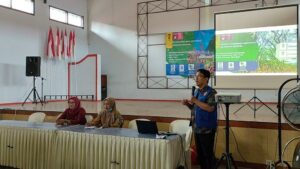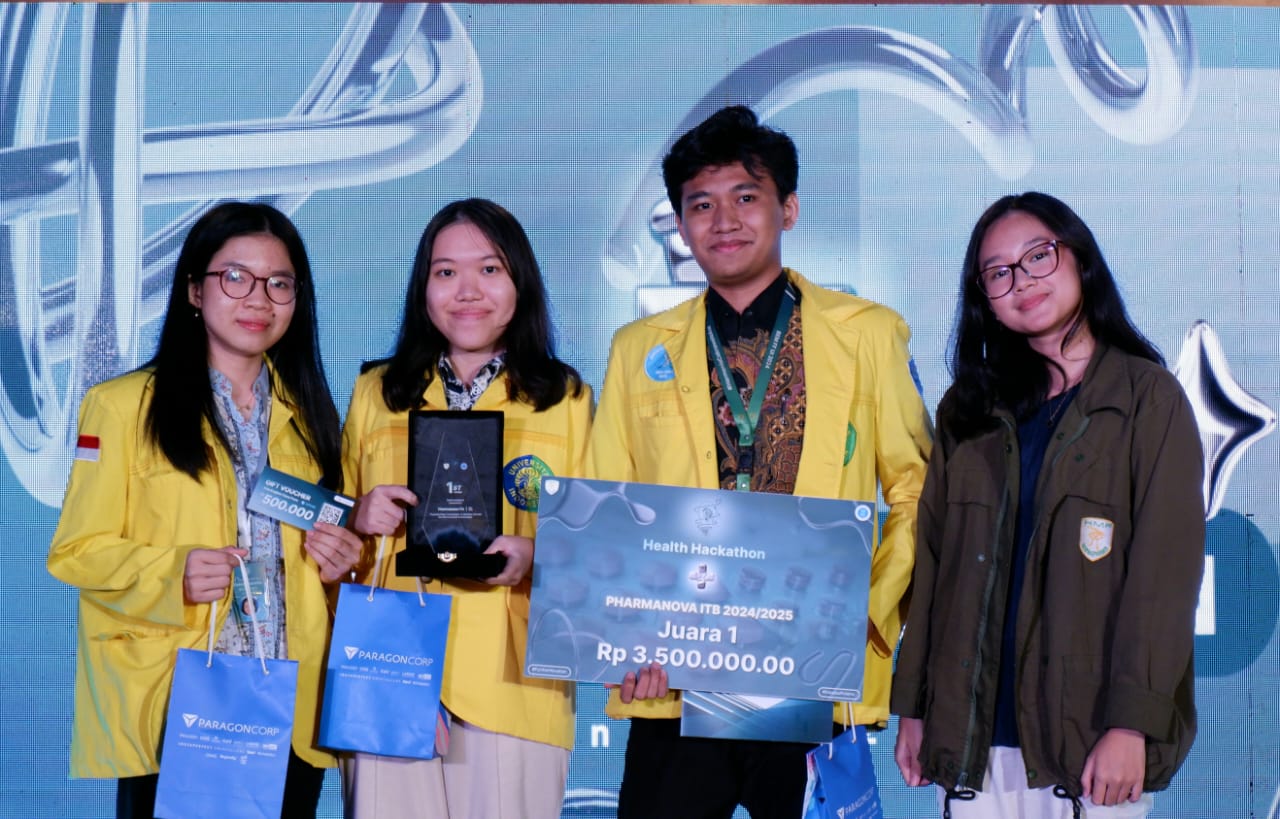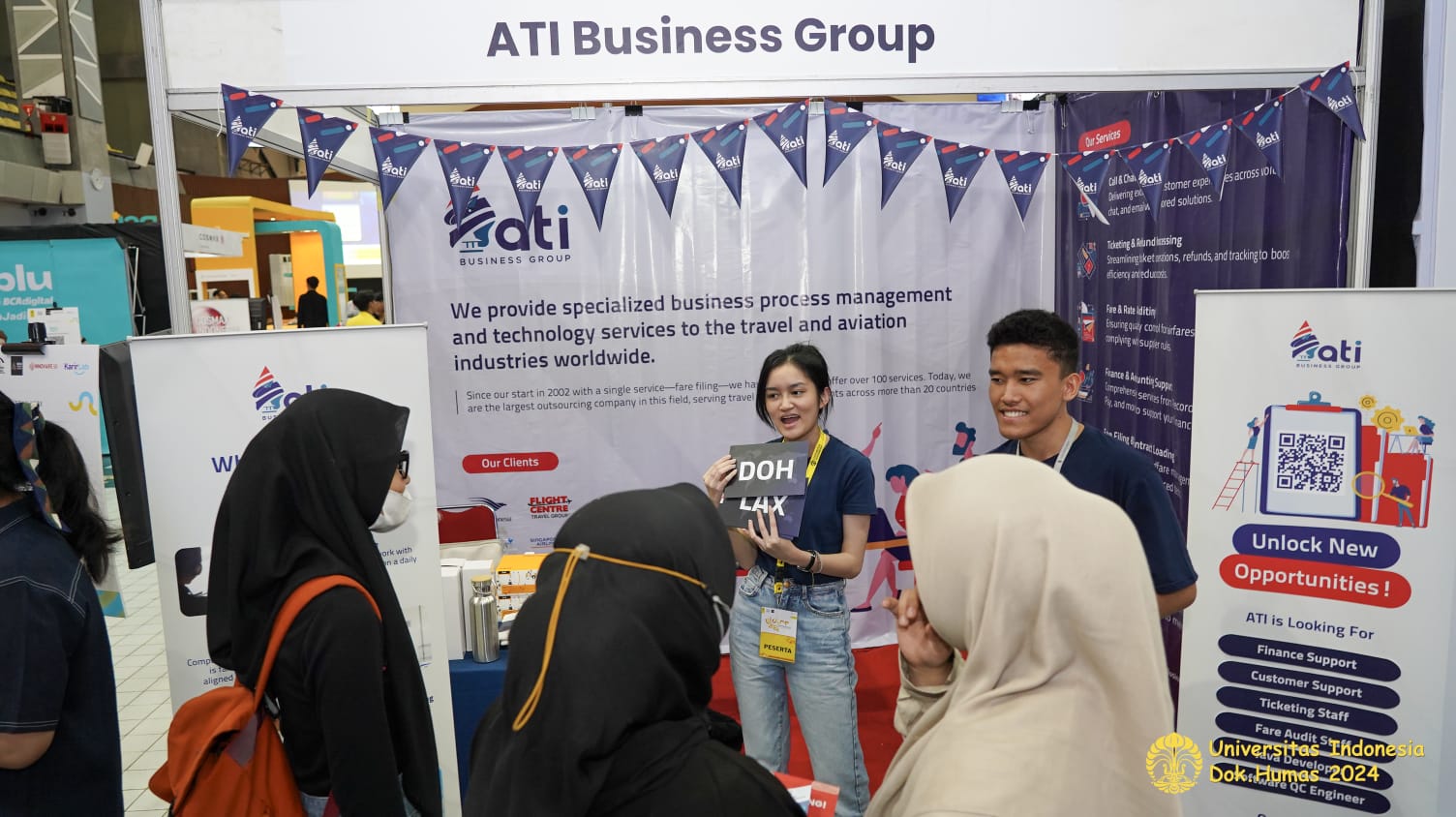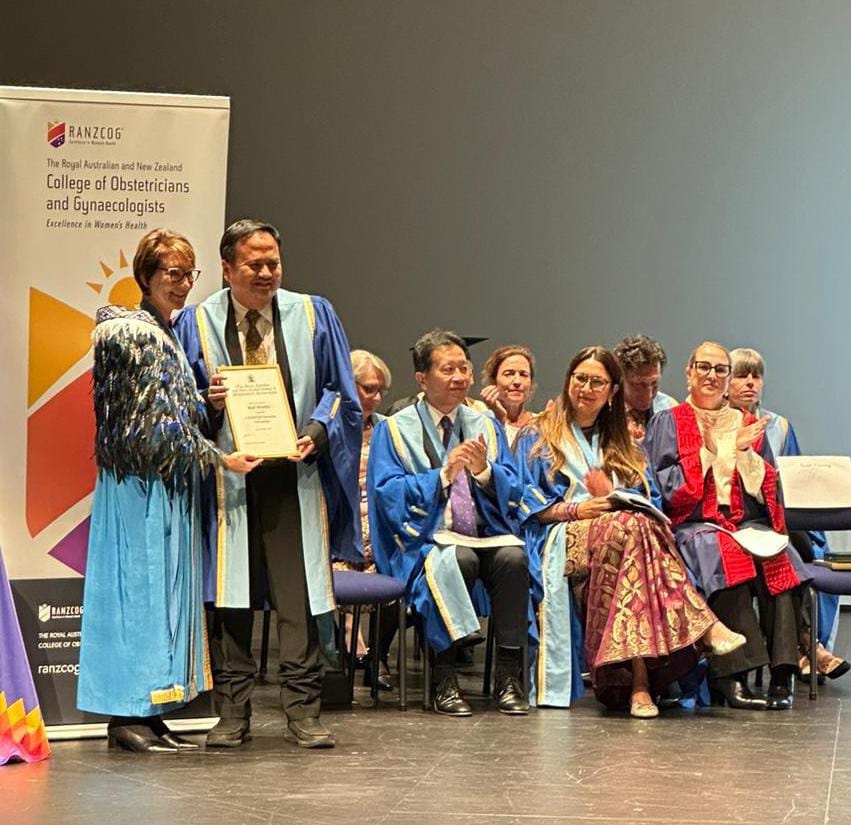
“Degenerative diseases are a scourge for most of Indonesia’s population entering the age of 30 years and above. These diseases are known as hypertension or high blood pressure, hypercholesterolemia or high total cholesterol levels, diabetes mellitus, and high uric acid. All of them are included in metabolic syndrome,” said Head of the Community Service Program, Faculty of Pharmacy, Universitas Indonesia, Dr. apt. Anton Bahtiar, M.Biomed.
Degenerative diseases are not contagious, but chronic, due to the deterioration of organ function as a result of the aging process. To address this issue, the government established a policy to improve health services through the National Health System. The government strives to achieve optimal health status as a manifestation of general welfare.
To support the government in dealing with degenerative diseases, the Research and Service Team from Universitas Indonesia Faculty of Pharmacy and Faculty of Medicine held a community service in Penganjuran Village, Banyuwangi District, last month (Wednesday, 07/20). They conducted counseling to 50 residents of Penganjuran Village to raise awareness of health in old age.
In addition to counseling, health checks were also conducted on residents related to degenerative diseases, including blood pressure checks, blood sugar levels, total cholesterol levels, and uric acid levels. In the examination, the results were obtained: 71.4% of the population had a blood pressure of more than 120/80 mgHg; 57% had a total cholesterol level of more than 200mg/dL; 65.3% had a uric acid level of more than 6-7 mg/dL; and 32.7% had a blood sugar level of 140 mg/dL.
Head of Penganjuran Village, Yuda Teguh Siswanto, S.STP., M.M., said the Universitas Indonesia Community Service Program is in line with the Banyuwangi Rebound Program. The program includes three important pillars, namely pandemic resilience, economic recovery, and harmony. “Health is important to support the achievement of the Banyuwangi Rebound Program. One of the steps is to respond to Covid-19 through vaccination and improving the general health status of the community,” said Yuda.

Based on data obtained by the Universitas Indonesia Research and Service Team, the majority of residents of Penganjuran Village experience hypertension, hypercholesterolemia, and hyperuricemia, which are risk factors for cardiovascular disease. Therefore, the Community Service Team provides awareness to residents to pay more attention to their health in order to improve their quality of life and avoid the risk of cardiovascular disease.
Residents are encouraged to reduce fatty foods and reduce sugar consumption in coffee, which is usually consumed 6 times a day. In addition, residents were also given knowledge about herbal medicines found in the area around Banyuwangi. One of the plants that can be utilized is dragon fruit, which contains high antioxidants.
Primary Health Care (PHC) is the strategy set by the Indonesian government to achieve the health of all people. One important element in PHC is the application of appropriate technology and community participation. Community participation in supporting health development based on PHC takes the form of traditional medicine efforts (Badan Pusat Statistik, 2008).
To support this strategy, the Universitas Indonesia Research and Community Service Team taught the community how to make herbal tea using dragon plant stems. First, the trunk of the dragon tree is cut and dried. Then, the stems are pulverized into tea powder.
Apart from the tea from the stem powder, the flesh of the dragon fruit is also potentially good for health. This has been researched by one of the Community Service Team members, Dr. Tri Wahyuni. “The community is expected to be able to process themselves while utilizing the local wisdom of Banyuwangi as an effort to improve the health status of themselves and their families,” said Dr. Tri.



